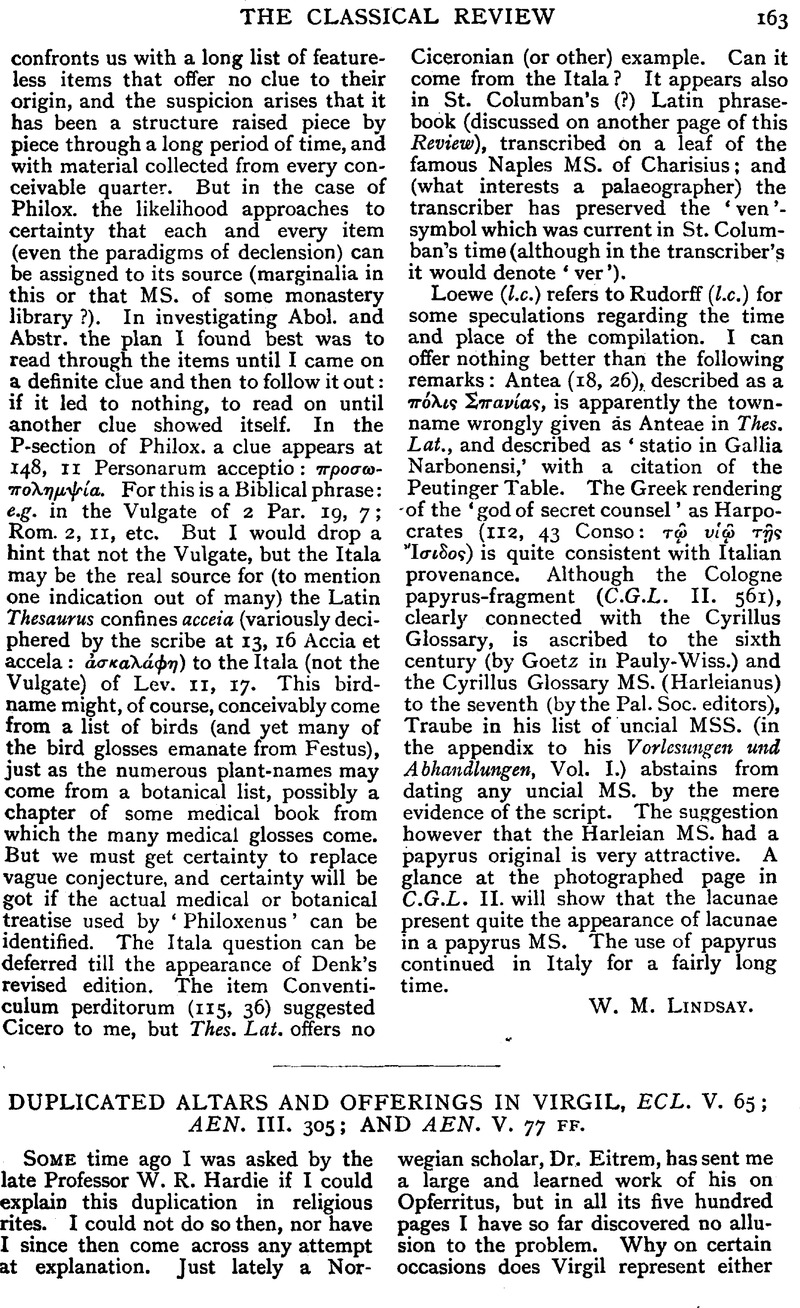No CrossRef data available.
Article contents
Duplicated Altars and Offerings in Virgil, Ecl. V. 65; Aen. III. 305; and Aen. V. 77 ff
Published online by Cambridge University Press: 27 October 2009
Abstract

- Type
- Original Contributions
- Information
- Copyright
- Copyright © The Classical Association 1917
References
page 164 note 1 ‘en quattuor aras : ecce duas tibi, Daphni, duas altaria Phoebo.
page 164 note 2 The combination of ox, sheep, and pig, as in the suovetaurilia of lustration, may be a slip of Virgil's. So far as I know it is not elsewhere mentioned in connection with inferiae: in the Cenotaphia of Pisa (see below, and Dessau, Inscr. Select. I. 140) only sheep and ox are mentioned. Virgil only speaks of the ox as being black, but he probably meant it to be understood of the other victims.
page 165 note 1 Virgil's altars are conceived as of the primitive rural kind—a raised turf, one for each victim. For a permanent temple and altar Anchises was to wait till the foundation of the city: V. 60 ff. The turf altar of rural life and primitive times survived in the ritual of the Fratres Arvales, in the form of a foculus with a caespes on the top of it (see Henzen, Acta, 23 and 27).
page 165 note 2 Dessau, Inscr, Selectae, I. 140.
page 166 note 1 Henzen, Acta Fratr. Arv. lxxi. This shows plainly that Servius' explanation of our difficulty will not do. The gods here who have double victims are heavenly ones.
page 166 note 2 Marquardt, III. 267 ; Wissowa, RK 2. 448.
page 167 note 1 In Aen. VIII. 556 we read ‘vota metu duplicant matres,’ i.e. at a time of particular peril. Servius writes, ‘nam inest semper in matribus votum. …’ Though we must not press ‘duplicant’ here, it seems to me to have a bearing on our question. In ix. 263 foll: the gifts are doubled which Ascanius promises to Nisus.




